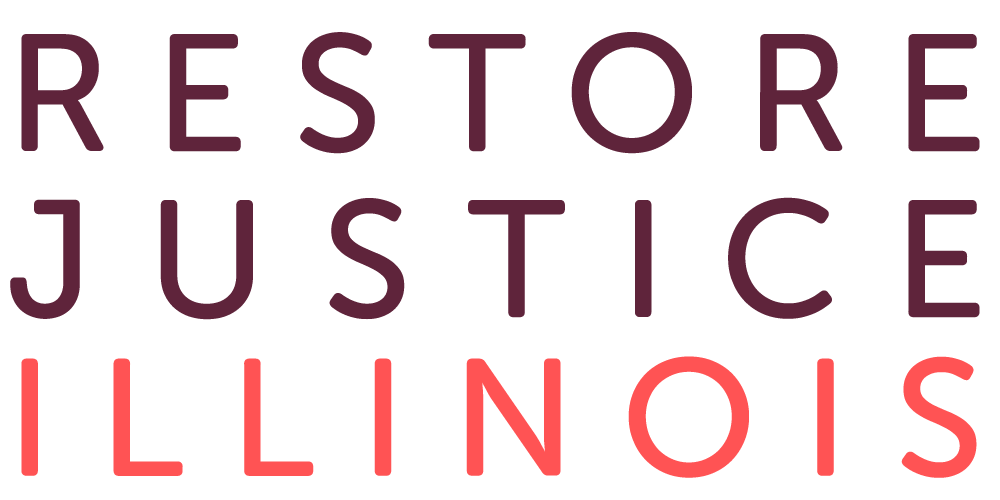JIM WALSH – 2020
REPUBLICAN CANDIDATE FOR ILLINOIS’S 62ND HOUSE DISTRICT
Mandatory gun enhancements: Judges must add 15 years to the sentence of someone who possesses but does not use a firearm in the commission of a crime. In 2015, a new law made these enhancements discretionary for juveniles, but not adults. HB4376 (Ford) would make those mandatory gun enhancements discretionary for all offenders. (Do you support, oppose, or are you neutral on the bill? Thoughts welcome.)
I would assume that the reason for the law being discretionary for juveniles is that they don’t necessarily have the capability of comprehending the consequences of their actions. This is not true of adults. Also, adults do many things that demonstrate they are of aware of an implicit contract with society that establishes impermissible behaviors. Also, while the person didn’t use the gun, having a gun while committing a crime exponentially increases the risk of bodily harm or death while committing the act. So, I oppose the bill that would make the enhancements discretionary for adults.
Felony-murder rule: Illinois has a broad felony-murder statute that allows prosecution of individuals for murder in cases where they did not commit or plan to commit a murder, but committed another forcible felony that resulted in someone’s death. HB1615 (Slaughter) and SB2292 (Peters) would narrow the scope of Illinois’s felony-murder law. (Do you support, oppose, or are you neutral on the bill? Thoughts welcome.)
In general, I am good with limiting the scope. However, if the person committing the felony has the opportunity to prevent the homicide, then that person should also have the consequence of felony-murder being on the table. In the case of the legislation presented I oppose the bill because I think the stipulation “and he or she knew that the other participant would engage in conduct that would result in death or great bodily harm.” is too restrictive. I may be ok if it were “if there was reason to suspect that the other participant would create a situation that led to the murder”.
Accountability: Illinois law utilizes a theory of accountability throughout its criminal statutes. This theory allows individuals to be convicted of the same, more serious crime as their co-defendant/s in an underlying felony, even if they did not directly perpetrate or plan to perpetrate the more serious crime. If convicted, people who are accountable serve the same sentence as the primary actor in the offense. (Do you think we should abolish accountability theory, narrow the usage of accountability theory, or keep accountability as is?)
That is tough. I think we need to narrow the theory. If it is demonstrated that the person could not have had prior knowledge of the more serious crime, then I can’t see intent. So, I can’t see convicting them of that crime. However, if it is demonstrated that the person could have prevented the more serious crime without risking injury or death, then I could see an aiding and abetting conviction.
Earned sentencing credits: A 1998 law called Truth in Sentencing reduced or removed the opportunity for incarcerated individuals to earn “time off for good behavior.” The law has led to much longer actual “time served” in Illinois prisons and has removed incentives for rehabilitation. (Do you think we should restore earned sentencing credits to pre-1998 levels, restore some earned sentencing credits, or keep sentencing credits the same? General thoughts welcome.)
The idea of rehabilitation needs to be coupled with that of public safety. There are some crimes where the circumstances show that the person’s liberty is a danger to the public, themselves or particular people. In those cases, I don;t see rehabilitation as a goal. However, there are many people in jail who have committed crimes that don’t explicitly threaten anyone’s life or livelihood. Minimizing the exposure of these individuals to the former needs to be a priority. So, I do see a place for rehabilitation programs with strict monitoring to allow them to have shortened sentences if they can prove to multiple experts that they will no longer engage in the behavior that put them in prison in the first place. This needs to be coupled with a proven program for reintegrating them into society.
Mid-sentence parole review: Illinois has true “parole for release” for only a tiny fraction of the prison population (those of any age convicted before the abolition of parole for release in 1978, and those under age 21 convicted after June 2019, pursuant to Public Act 100-1182, the Youthful Offender Parole Law). The remainder of incarcerated people in Illinois do not have access to a parole review hearing at any point in their term of incarceration. What most call parole in Illinois is a post-incarceration period of Mandatory Supervised Release, which is added to a sentence and is not a path to be released earlier than the original sentence.(Should we restore parole as a system for early release broadly, or should we continue with no general parole where the incarcerated serve the entire sentence received no matter what circumstances may have changed?)
This is the type of program I would couple with the early release as discussed above. Also, I see a place for Mandatory Supervised Release if it is used as a way to make reintegration easier, not just a way to punish people who fail at reintegrating.
Abolishing life without parole sentences for all juveniles. Unlike the majority of states, current law in Illinois still allows for a juvenile to receive a life sentence without the possibility of parole, despite young people having unique ability to change. A 2019 law implemented mid-sentence parole review for most individuals convicted of serious offenses before they turned 21. HB5670 (Mayfield) would expand on that law to prohibit life without parole sentences for anyone under the age of 21 when their crime was committed. Juveniles could still serve life in prison if the Prisoner Review Board rejects their application for early release. (Do you support, oppose, or are you neutral on this bill? Thoughts welcome.)
I think if we do allow for one parole review to determine whether the person deserves life without parole, it needs to have specific measures to deal with both the circumstances of the crime and the rehabilitation of the person seeking parole. The person who was murdered doesn’t magically get to come back to life. Also, there is no guarantee that someone who has committed murder can choose to believe that another person’s life matters more than the murder’s interest in murdering someone simply because the murder turned 21.
QUESTION 2: Proactive commutations by the Governor. Our current state prison population of 36,000 remains stubbornly high, largely because Illinois abolished mid-sentence parole review in 1978; people who otherwise might have been released from prison due to rehabilitation no longer have that option. The State Constitution gives the Governor authority to commute any sentence and release any person. Today, commutation is a reactive process. An incarcerated individual must submit a petition for review to the Governor, who tasks the Prisoner Review Board with creating a private recommendation, which the Governor may or may not act upon. Given the lack of mid-sentence parole review since 1978, do you think Governor Pritzker should make the reactive commutation system more proactive to systematically consider commutations? Potential groups to consider for proactive commutation include the elderly (over 65), those who have had excellent records while in prison, or those who have demonstrated remorse and have been rehabilitated but still face decades of incarceration. (Do you think Governor Pritzker should proactively review incarcerated individuals serving long sentences and assign them to the Prisoner Review Board to determine whether their sentences ought to be commuted given their unique circumstances? Do you think he should not do that? Thoughts welcome.)
In a perfect world, yes. For offenses that didn’t lead to loss of life, self or limb, I think the governor should proactively review the records of incarcerated individuals serving long sentences. However, we are in the middle of a pandemic, and the leadership in the General Assembly has abrogated its responsibility to lead. So, the governor has far too much on his plate. If there is a clause that the proactive review happens only when there isn’t a declared state of emergency and a clause ensuring it doesn’t apply to murderers and rapists, I am all for it.
QUESTION 3: Centralizing IDOC procedures. Illinois has faced many serious class-action lawsuits over various aspects of prison conditions, and has been found in court-ordered reviews to have failed to meet some basic standards of care of people in custody. Illinois has a decentralized administrative system for the Illinois Department of Corrections where wardens of each of the 28 prisons have significant authority and autonomy. Do you think Illinois should have a more centralized system of administrative procedures? (Do you think IDOC should centralize procedures and promulgate rules as other states do or continue with a decentralized administrative system where wardens have significant authority and autonomy?)
I think that there needs to be a minimum set of rules that ensure conditions in all prisons are humane to include, at a minimum meeting basic standards of care. However, I think that wardens in individual prisons should have the authority to both discipline and reward both guards and prisoners when the behavior of the guards and prisoners merit disciplining or rewarding. And I think the warden needs to ensure these situations are codified ahead of time so that all have fair warning of those added rules.
QUESTION 4: General views and personal anecdotes. When you think about our criminal legal system in Illinois (from policing to prosecution to sentencing to incarceration to re-entry), what do you see as the biggest opportunities for improvements in the next two years? Have you had experience witnessing the criminal legal system firsthand, via your own personal experience, or through that of a friend, family member, or constituent that you’d like to share? Please consider this an open-ended question to share any important anecdotes that inform your perspective.
In the next two years, we can refine laws, encourage police departments and communities to come together and start to develop programs to prevent minor criminals becoming major criminals. Red Flag laws and no-knock warrants are written in such a way that they almost guarantee a deadly confrontation with the police. The must be a requirement that the gun owner be notified, and that there be due diligence to confirm that the gun owner is aware of the hearing to remove the guns. The requirement about loss of evidence must be struck from the law in no-knock warrants. Next, the state should help local governments develop committees throughout the state for the purpose of determining what community policing should be in their area. Finally, adjustments to the jail system including those listed above and deprivatizing the system must be begun.
QUESTION 5: Voting rights while incarcerated. Should people who are incarcerated in prison be allowed to vote? Those in county jails (before they are sentenced) are allowed to vote. Vermont and Maine allow those serving a sentence in state prison to vote.
I am going to be a hard no on this one. We give up our right to have a say in who makes the laws of the land when we break the laws of the land. We can only regain that right by paying our debt to society. So, until we are released from prison, I think our right to vote should be suspended.

